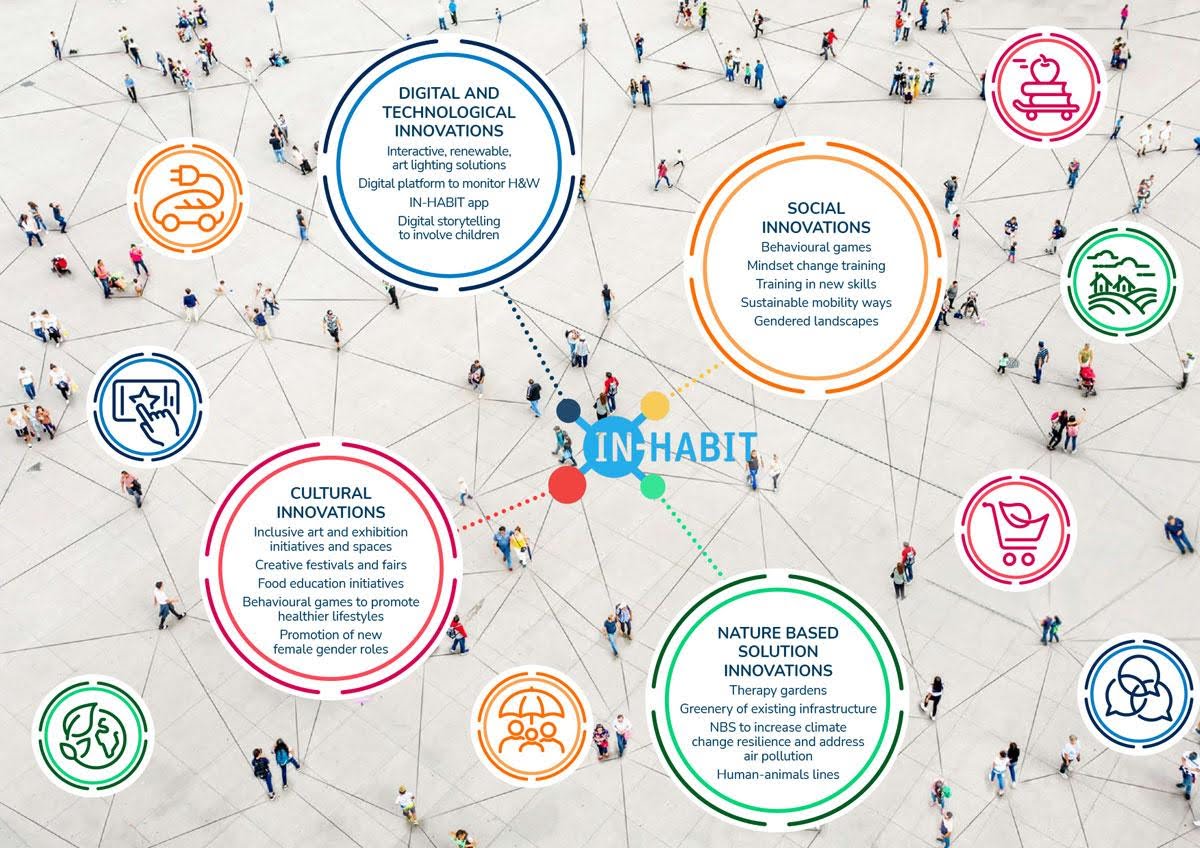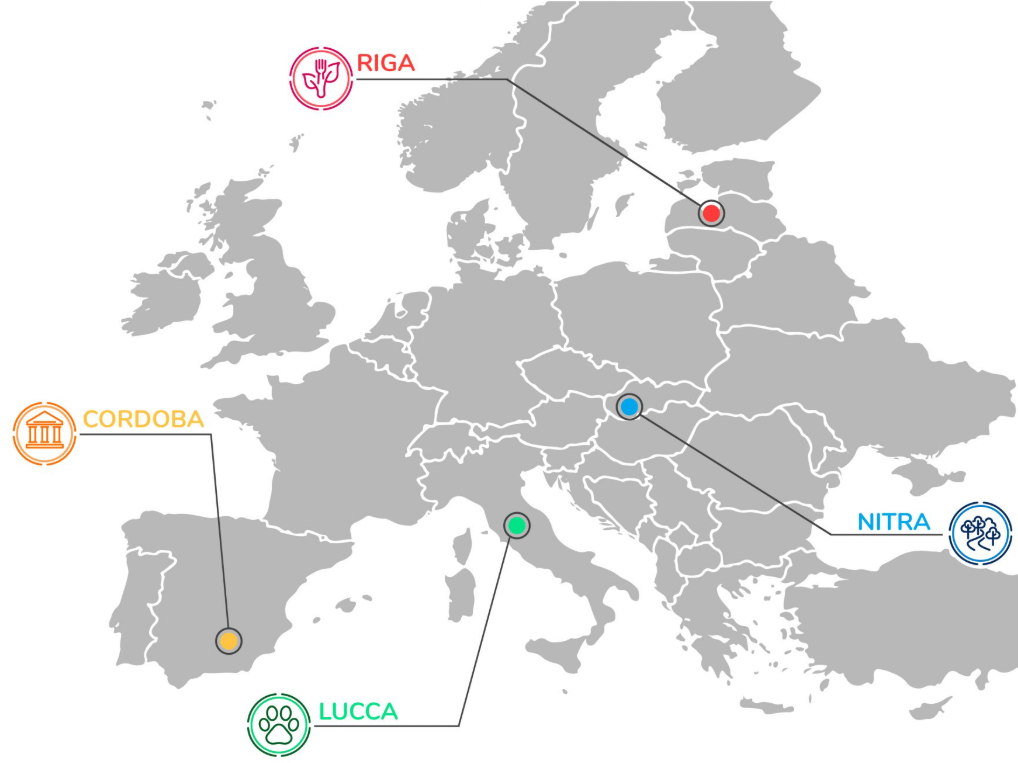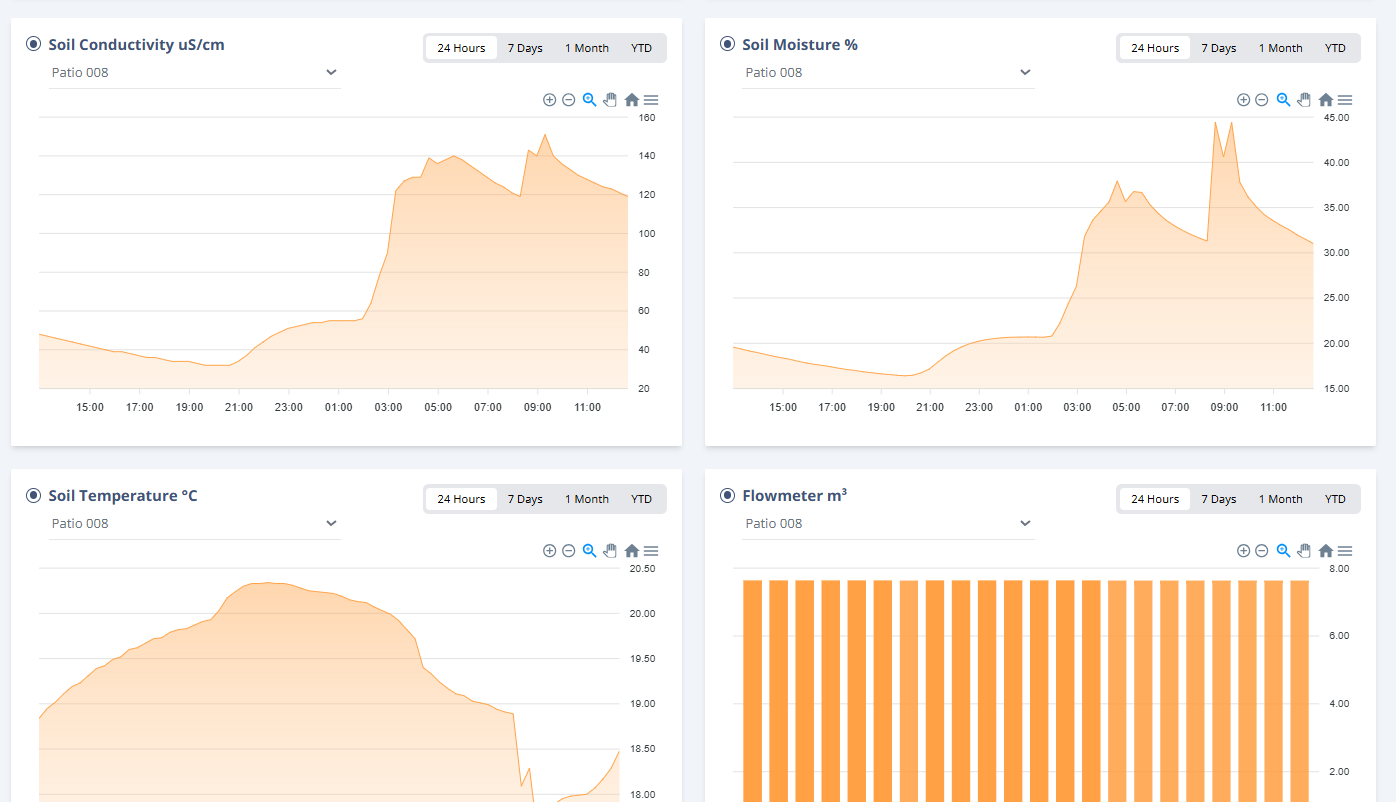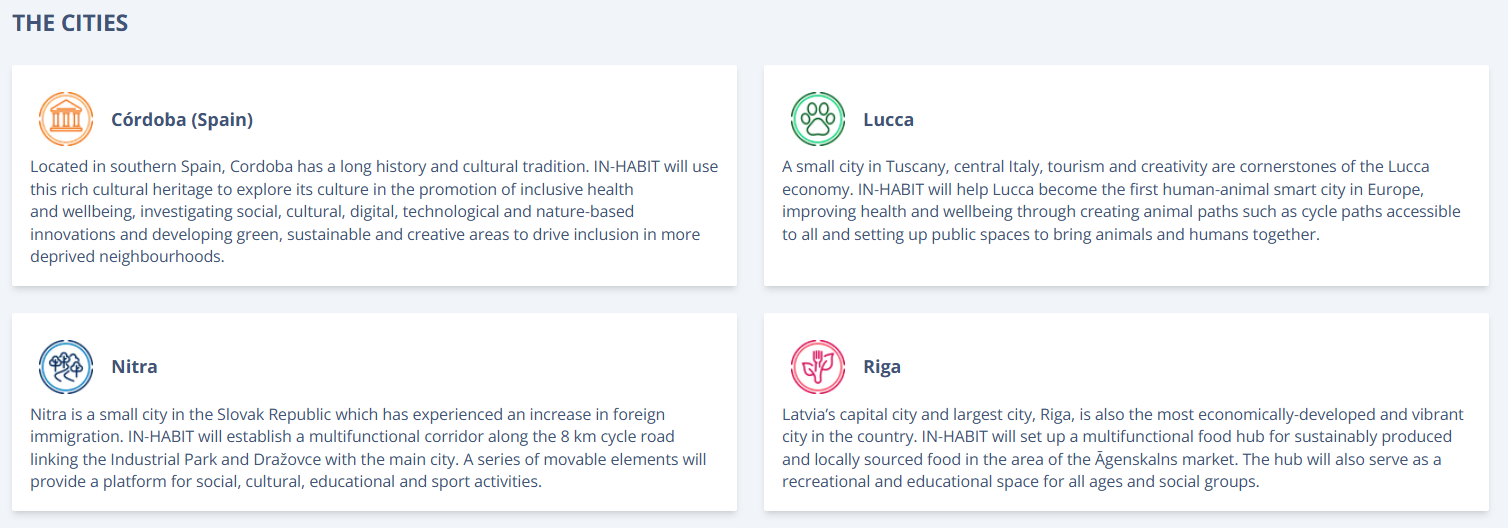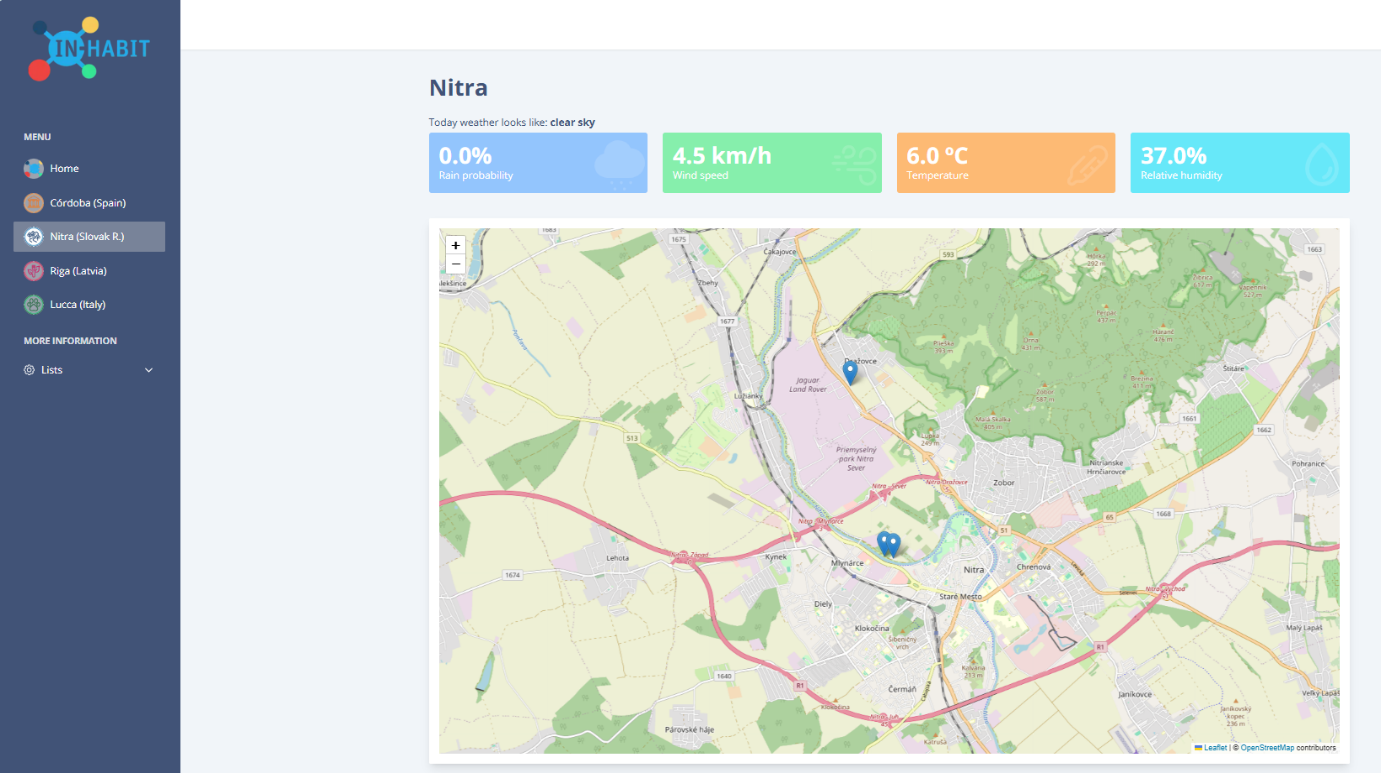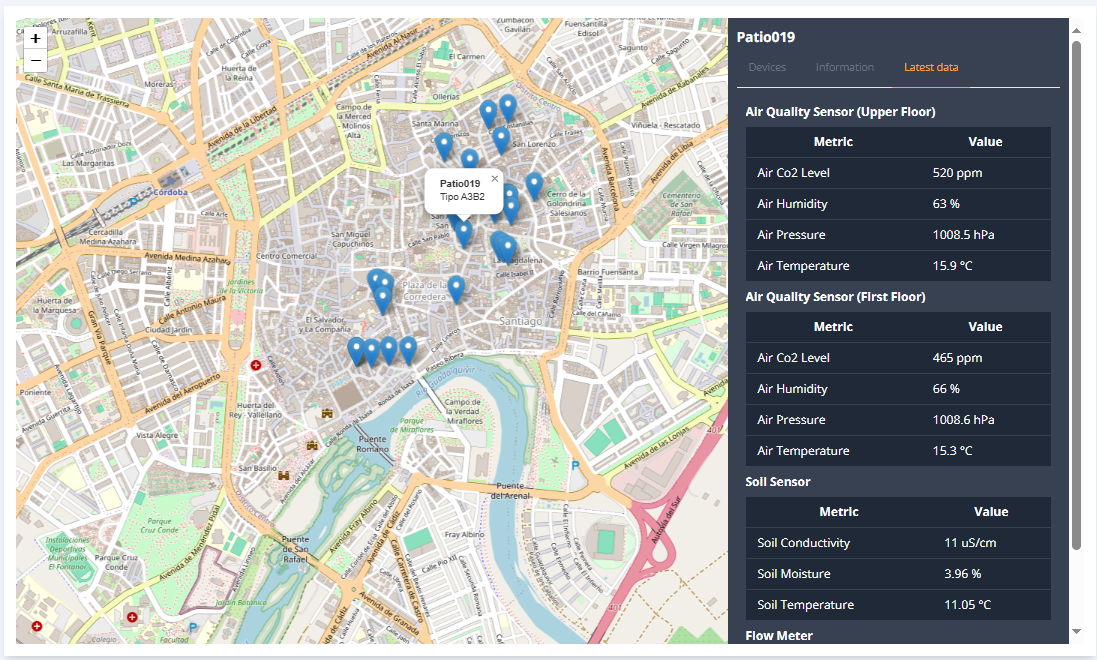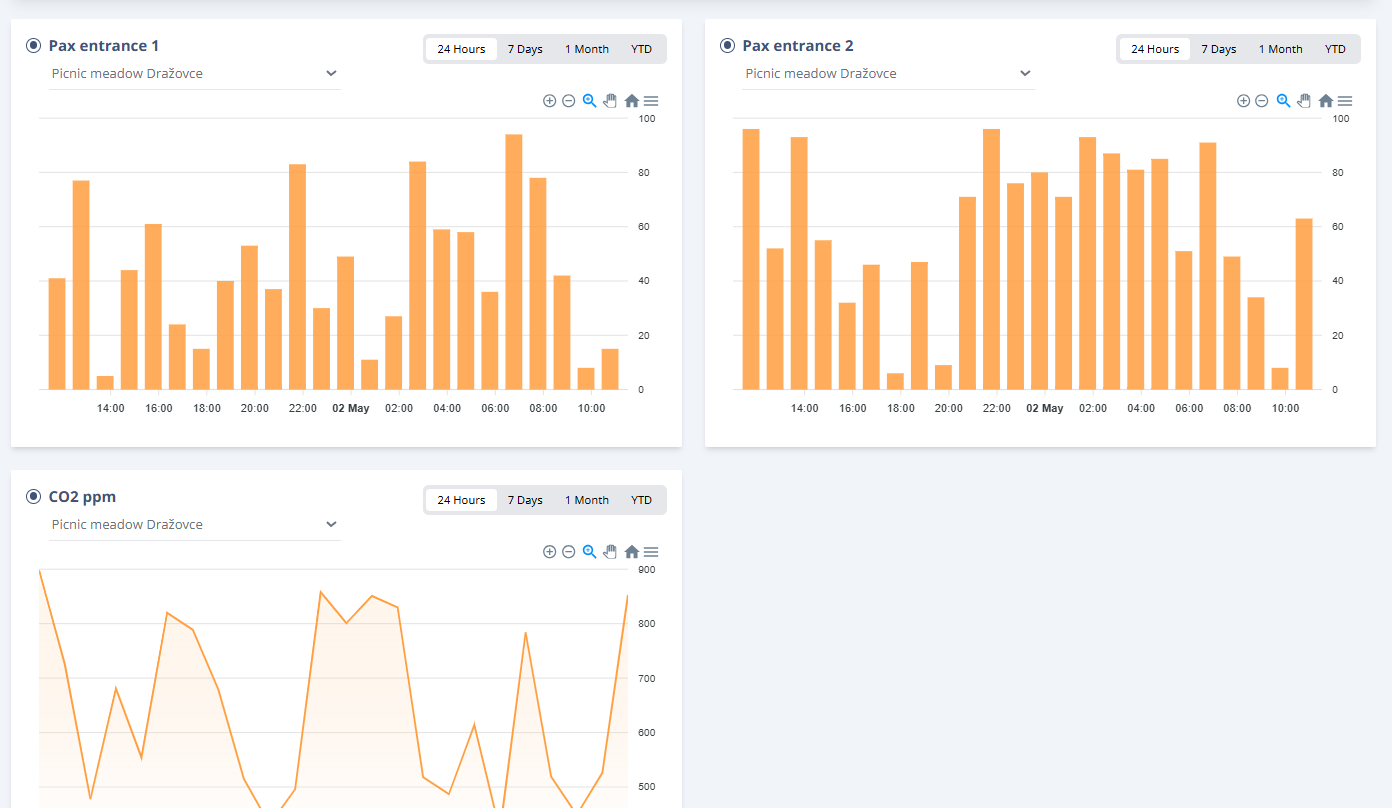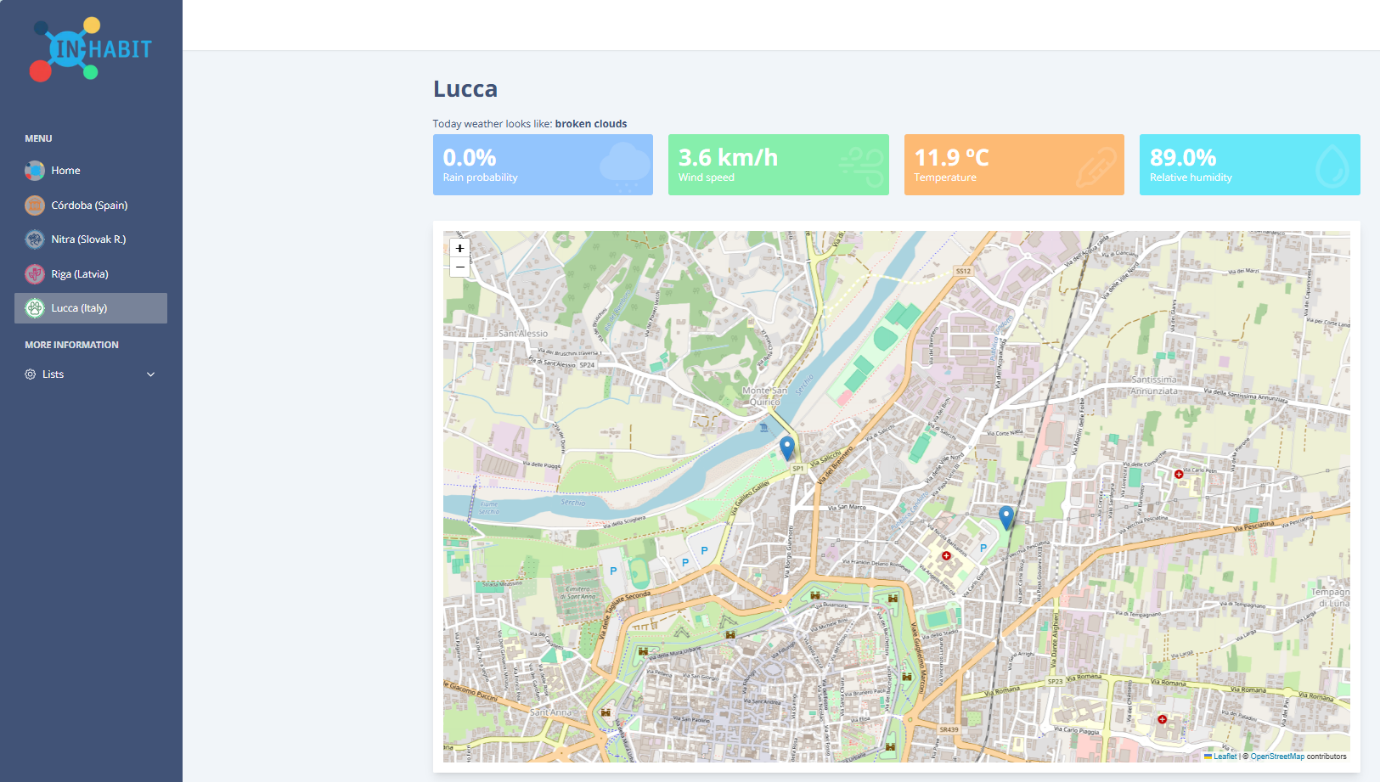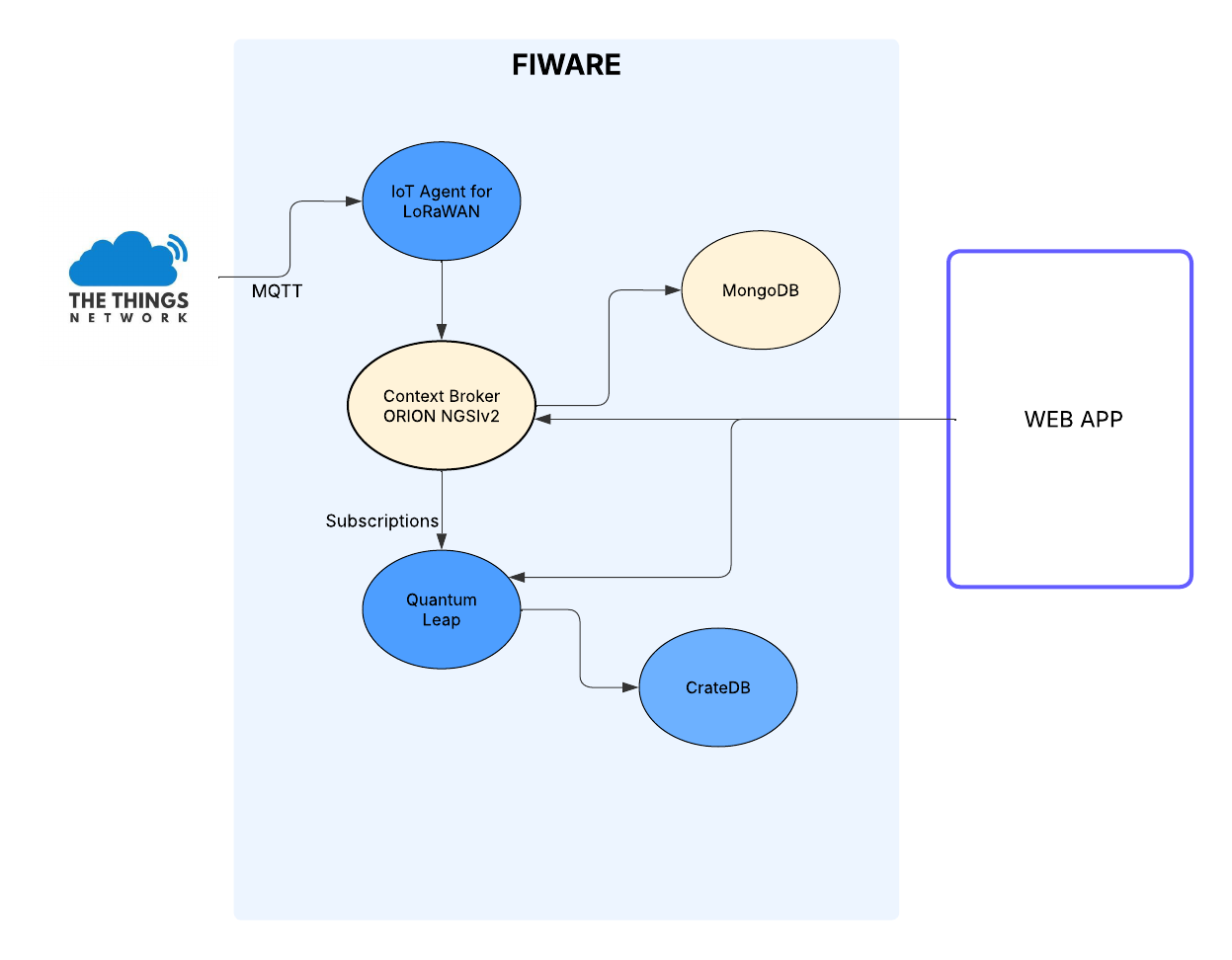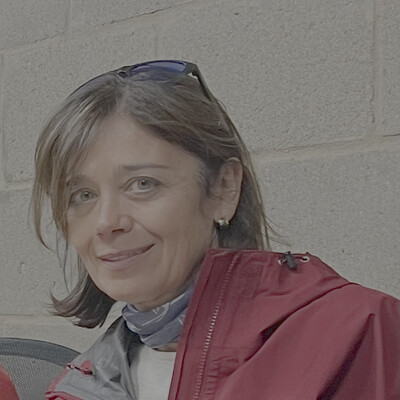





Building better cities for all
Currently, most of the population resides in cities. This urban growth presents challenges, including unequal resource distribution and increasing socioeconomic disparities, which significantly impact health and well-being, particularly for the most vulnerable groups. Issues such as climate change, social isolation, an aging population, and insufficient public and green spaces exacerbate these problems. Public policies need to address these challenges, but they often lack granular data to support effective decision-making.
Challenge & Context
Data to inform decision-making for inclusive urban planning
Challenges faced
Urban environments face growing challenges related to inequality, environmental stress, and social exclusion. The IN-HABIT platform collects real-time data from public and private spaces to understand how people use and interact with their environment. The data gathered by the IN-HABIT platform provides insights into the environmental and social parameters related to the use of public spaces and green areas. This information will support inclusive and adaptive decision-making and planning policies, especially for vulnerable populations.
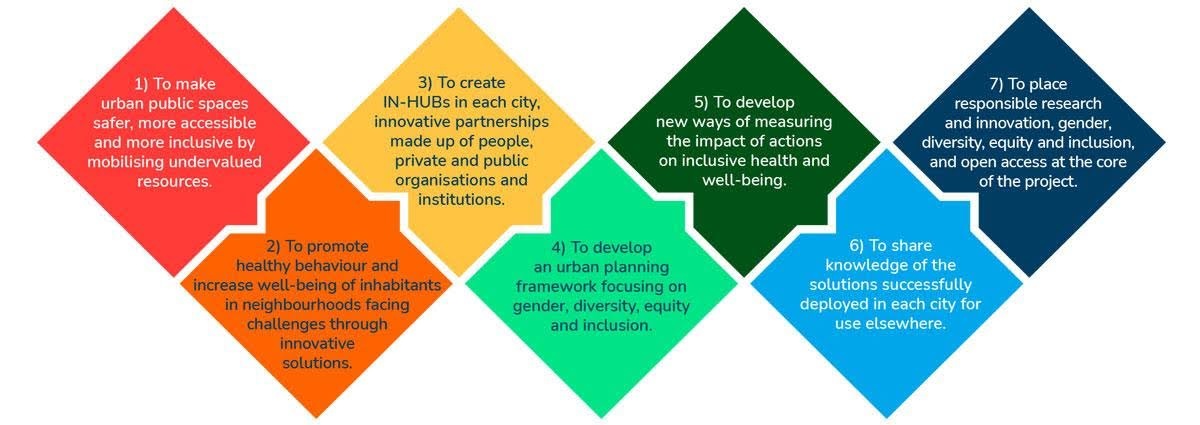
The Context
Each IN-HABIT city explores different resources to boost inclusive health and wellbeing, utilizing participatory action research approaches, collaborating with vulnerable collectives, and implementing various actions. In Cordoba, we investigate the role of patios as green and social spaces. In Riga, we focus on the inclusive use of a food market. In Lucca, we create relational areas for animals and people, while in Nitra, we promote migrant integration through art and environmental initiatives in open spaces. The platform will offer information on how these spaces are utilized and the health and well-being benefits they provide. This data will be analysed and presented to different users in a friendly format.
Solution
IN-HABIT, a platform to monitor urban well-being using citizen science
IN-HABIT is an H2020 project investigating how to promote inclusive health and well-being in Cordoba (Spain), Lucca (Italy), Riga (Latvia), and Nitra (Slovakia). The IN-HABIT platform utilizes citizen science and measures from various digital sources, including sensors, cameras, open data, and apps, to monitor the effects of actions implemented to enhance the health and well-being of citizens, based on citizen involvement.
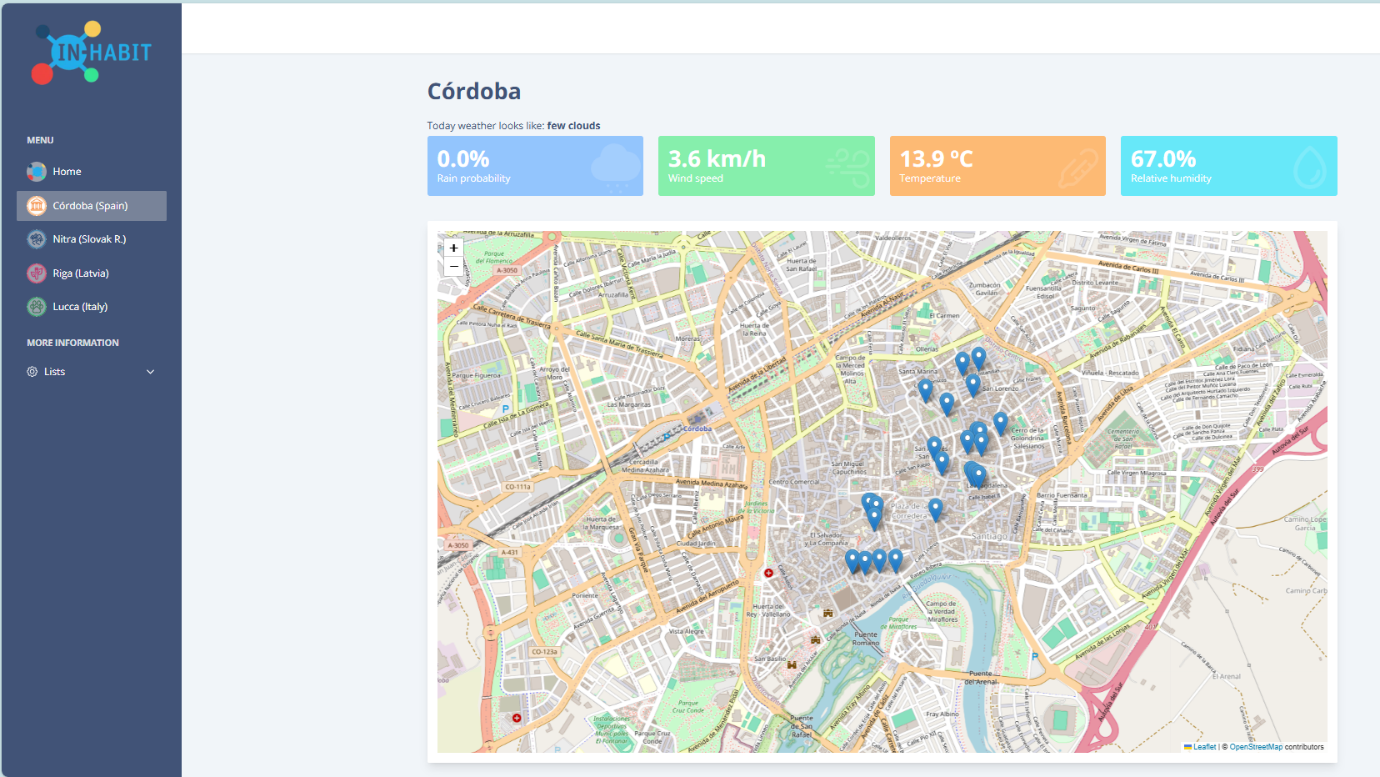
How it works
FIWARE architecture for urban data integration
Sensor data is transmitted from The Things Network (TTN) using the MQTT protocol to a FIWARE IoT Agent for LoRaWAN, which acts as an intelligent interface (Generic Enabler), translating device data into a standard context format (NGSIv2). This data is sent to the Orion Context Broker, the core of the FIWARE architecture, which manages the context information in real-time and stores it in MongoDB, a NoSQL database used as a short-term memory.
To support time series analysis, Quantum Leap subscribes to Orion and captures updates to persist them in CrateDB, a high-performance SQL database optimised for temporal queries. Both real-time and historical data are accessed via a web-based control panel that requests updates and contextual data that does not change from Orion, as well as historical trends from Quantum Leap. The entire infrastructure is run on a Docker Compose stack, enabling flexible deployment and scalability.
A custom Python-based health check API monitors the infrastructure. If expected data fails to report within a defined time threshold, the system attempts an automatic recovery by restarting containers. If the problem persists, email and Microsoft Teams alerts are triggered, ensuring rapid response and minimal downtime.
Benefits
Data-driven strategies for healthier cities
The IN-HABIT platform uses a robust FIWARE-based architecture to collect, manage, and enable real-time data analysis. By integrating citizen science and multiple data sources, including environmental sensors and open data from weather stations, the platform enables constant monitoring of the spaces under study. Individual dashboards accessible to participating citizens provide them with access to the collected data, enabling them to track its evolution. Local researchers also utilize this data to identify trends and design targeted interventions aimed at improving health and well-being. The analysis of the impact of actions implemented by the IN-HABIT project will contribute to better management of each city’s resources.
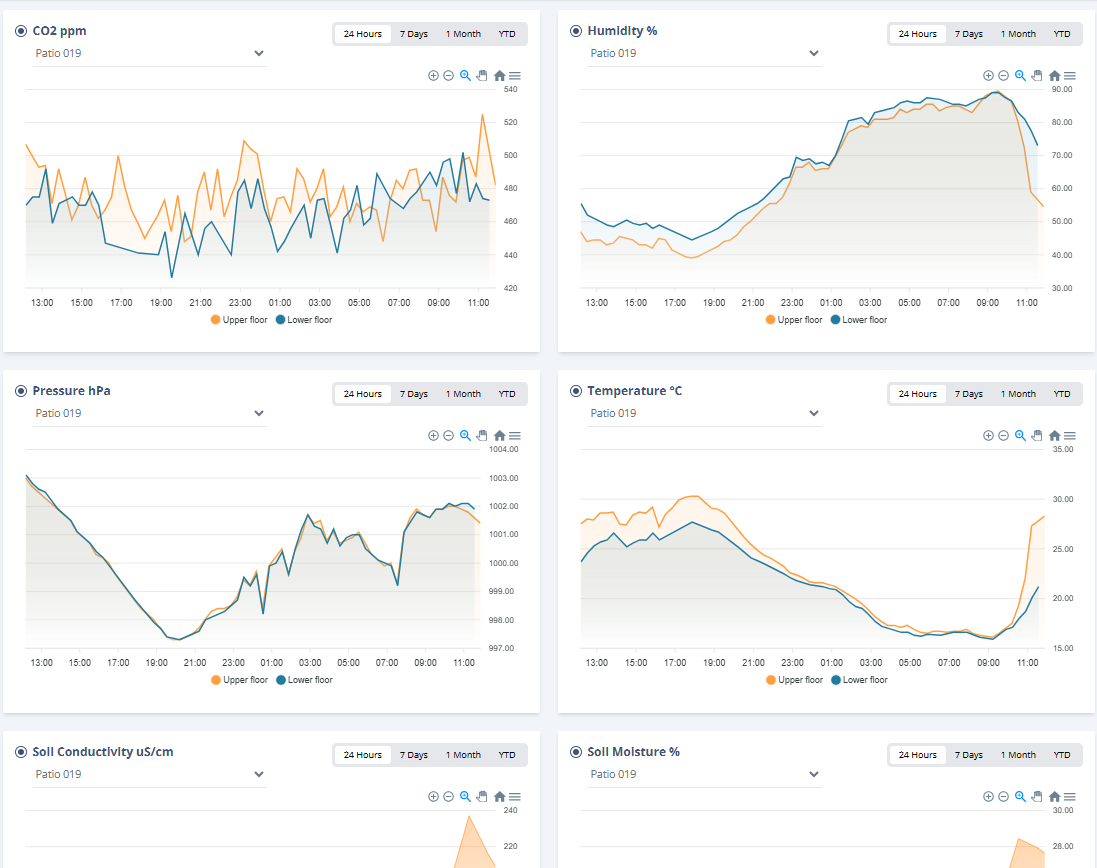
FIWARE Value
FIWARE-driven resilience and interoperability
FIWARE provides the backbone of the IN-HABIT platform with its open source, modular architecture, enabling seamless integration of heterogeneous data sources. Core and Generic Enablers, such as the IoT Agent, Orion Context Broker, and Quantum Leap provide real-time and historical data management using NGSI standards, ensuring interoperability across systems. The use of FIWARE enables IN-HABIT to deploy a scalable, containerised infrastructure that is highly resilient. The modular design simplifies updates, monitoring, and troubleshooting, while ensuring that cities can reuse components or adapt them to their own contexts. By leveraging the FIWARE ecosystem, IN-HABIT becomes a replicable and future-proof solution for inclusive, data-driven urban planning.
FIWARE: A catalyst for change in inclusive health and well-being data collection
FIWARE provides a robust foundation for IN-HABIT, enabling real-time context management, historical analysis, and scalable deployment using open source components and standard APIs.
FIWARE is the right choice due to its:
- open architecture and standardised APIS (NGSI) that simplify integration;
- well-maintained and tailored to smart city use cases;
- container deployment with Docker Compose that improves scalability and recovery;
- active developer community and extensive documentation that accelerates implementation and improvements.
Next Steps
Scaling up, replicating, and evolving the platform
The IN-HABIT platform will continue to evolve through the integration of new data sources, broadening the range of parameters monitored and citizen-generated data via mobile applications. These additions aim to improve the understanding of urban well-being and respond more effectively to emerging challenges.
The architecture is ready to be replicated in other contexts. The modular design and use of open standards enable it to scale horizontally and adapt to local needs, ranging from large urban environments to small neighborhoods or community-led initiatives.
The work will also focus on improving accessibility and usability for non-expert users, including citizens, local associations, and educators. By engaging citizens and democratising access to environmental and social data, IN-HABIT aims to promote more participatory and transparent urban governance.
Conclusion
Leveraging real-time data for inclusive and sustainable urban planning
By engaging citizens and democratising access to environmental and social data, IN-HABIT aims to promote more participatory and transparent urban governance.

